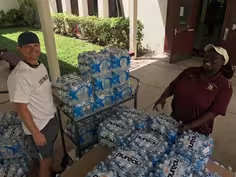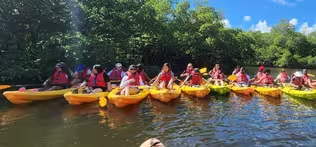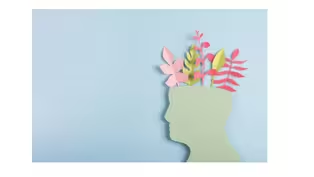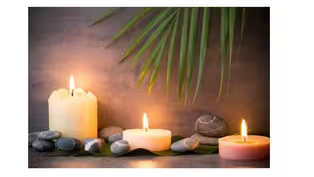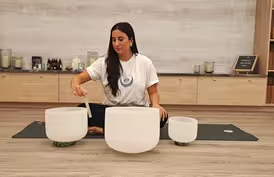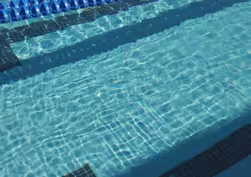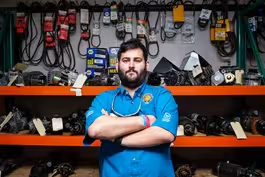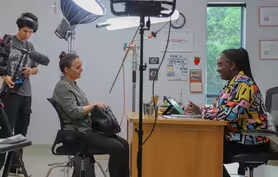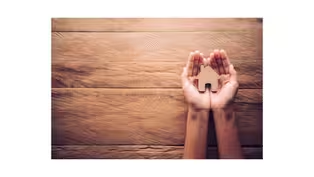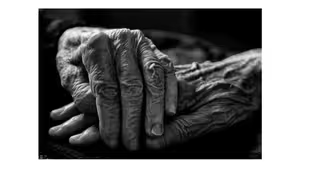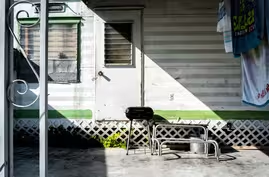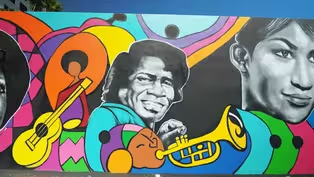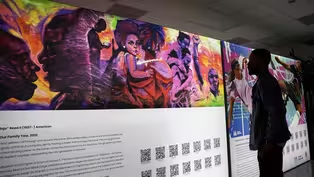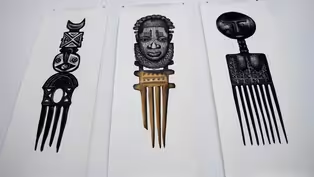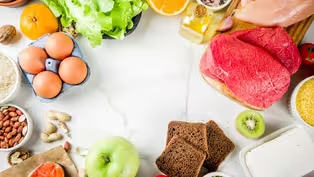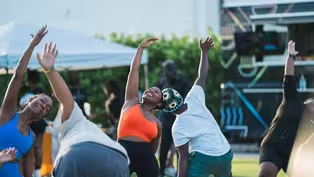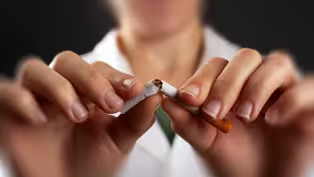Your South Florida
Low Cost Mental Health Support for All Ages at Faulk Center
Clip: Season 9 | 9m 33sVideo has Closed Captions
Mental health challenges can affect anyone.
Mental health challenges can affect anyone — but the kind of support needed can change dramatically depending on your stage of life.
Problems playing video? | Closed Captioning Feedback
Problems playing video? | Closed Captioning Feedback
Your South Florida is a local public television program presented by WPBT
Your South Florida
Low Cost Mental Health Support for All Ages at Faulk Center
Clip: Season 9 | 9m 33sVideo has Closed Captions
Mental health challenges can affect anyone — but the kind of support needed can change dramatically depending on your stage of life.
Problems playing video? | Closed Captioning Feedback
How to Watch Your South Florida
Your South Florida is available to stream on pbs.org and the free PBS App, available on iPhone, Apple TV, Android TV, Android smartphones, Amazon Fire TV, Amazon Fire Tablet, Roku, Samsung Smart TV, and Vizio.
Providing Support for PBS.org
Learn Moreabout PBS online sponsorshipMental health challenges don't discriminate by# age, but the support we need can look different at every stage in life, whether it's teens# struggling with anxiety, young adults facing life transitions, midlife adults managing stress# and burnout, or older adults coping with loss and loneliness, access to care is essential.
The# Faulk Center For Counseling in Palm Beach County provides free and low-cost mental health services# for people of all ages.
Joining me now to talk about these resources and the unique needs that# arise across life's different stages is Dr. Holly Katz, Clinical and Training Director at the Faulk# Center.
Dr. Katz, thank you for being here.
Thank you so much for inviting me.
Of course.
Tell us a little bit more about the Faulk Center.
Well, the Faulk Center for Counseling was initially founded by Elizabeth# Faulk.
She was actually the first woman to get a PhD in Psychology from the University of# Florida.
And her belief was that everybody should receive quality mental health services# regardless of an inability to pay.
So our agency is a more than 50yearold not-for-profit# agency serving children through older adults, everything in between, serving those individuals# in a variety of mental health programs.
One of your core missions is to# provide free or accessible care.
Tell us about some of those services.
Well, we provide counseling groups either on telehealth or in-person, and our group counseling# is either free of charge or very low cost.
And when I mean low cost, I mean like $5 a session.# So that's amazing, so that anybody can receive services.
We also do individual therapy and family# therapy and couple therapy, and those services are $65 a session, but anybody has an opportunity# to request a reduction in fees, and we provide those based on their level of income.
You work with age groups, and it could be teens, midlife, older folks like we were saying.
Let's# start off with teens though.
What are some of the biggest challenges they're facing?
Well, I'm sure you know Yeah.
Today's social media has really done damage to that population because people are# looking at other individuals and basing their lives on what they see others are showing their# best selves or their fake selves.
And so that level of competitiveness and feeling like maybe# I'm not good enough, is something that is very, very damaging to teenagers.
And what we# know is we've seen over the last decade, a huge rise to the mental health challenges for# teenagers.
Depression and anxiety is now 20% of the teenage population.
Wow!
And in the age group of 10 to 24-year-olds,# suicide is the second leading cause of death, which is just not acceptable today.
Oh my gosh!
I feel like the next follow-up should be, what do you do?
How do you encourage them?# And as a parent, what do you look out for?
Right.
So one of the things that you wanna# really do is create an open conversation for your teenagers, and not be afraid to discuss# with them that sometimes talking to a mental health professional is a very, very brave# thing to do.
And it would be a shame Hmm.
For anybody to not receive services because ..
So we have programs that bring teenagers together# who have challenges with coping or challenges connecting with other teenagers.
So for example,# in our COPE group, teenagers are gonna learn skills for emotion regulation, problem-solving,# any kinds of skills that are gonna help them to deal with very, very uncomfortable feelings.
And# in our Connect groups, we teach individuals how to make friends, how to keep friends, how to have# appropriate boundaries.
And those skills really Hmm.
Set into teenagers up for future success.
Right.
Challenges evolve as we get older,# and folks coming to you in their 40s or 50s, what are you seeing in that age group?# And how are you helping them?
So one of the challenges, particularly in midlife# is the challenge of, for many people caring for an older adult parent and also a child Mmhmm.
And we call that the sandwich generation.
So# you're really feeling like you're divided, your attentions are divided between caring# for your parent and caring for your child, and really having very little selfcare.
Right.
The other challenge that we see very often in# midlife is that people are starting to think, how much time do I have left?
Have I had the# career that I want?
Do I have the relationship that I want?
Also physical changes start to# happen, and there is a concern for women, for example, you're reaching menopause, medical# challenges and changes, and that can be also really stressful during that time period.
And seniors and older adults, what's impacting them right now and how do you# support that population?
So older adults, one aspect that we know,# loneliness is very, very highly tied and connected to depression.
Hmm.
And individuals who are lonely and depressed# actually have a much higher rate of mor..
So you actually can die of loneliness.
One of# the aspects that we do, one of the programs that we do, we actually have two very large# programs for older adults to increase their social connectedness.
One is we go out into the# community, and we provide onsite support groups to older adults in residences, to senior daycare# centers, in assisted living facilities.
And we provide these support groups, so that individuals# can see, "Oh, I'm not the only one."
And they have an opportunity to tell their story, reminisce# on their life, and really receive the connection and validation that they deserve.
We also have# another program, which is absolutely wonderful.
During Covid, as you remember, the whole world got# shut down, and so our support groups out in the community for seniors, we weren't able to reach# those people, so we developed a program where our clinicians in training would go ahead and call# the senior adult once a week for 20 minutes, 15 to 30 minutes, and really provide# that support.
And all the senior needs is a telephone to be able to participate in that# program.
It was hugely successful during Covid, so much so that our funder decided to continue# it even when we came out of Covid because it really provided an opportunity for the older adult# wherever they were to connect with a clinician and decrease loneliness, very effective.
That's wonderful.
And something the Faulk Center also does is train# clinicians.
Tell us about that.
Yeah, so one of the things I always say to# somebody, and I have a friend who is a very, very successful doctor, and he says, "One# of the things you wanna do is, if you go to a new place or you're living in a new place,# which hospital should I go to?
Always go to the teaching hospital because they're the ones that# are gonna have the state-of-the-art treatment, the latest evidence-based treatments.# For psychology it's very comparable, so we take students from across the nation# through our American Psychological Association approved internship and students here from our# local university.
So we have students who train with us from Lynn University, Florida Atlantic# University, Nova Southeastern, and from all over the country as well.
And those students receive# very, very close supervision and didactics.
Hmm.
And this program allows us to provide services at reduced fees,# so that any individual who comes for services at the Faulk Center is going to pay a fraction of# what they would pay a private practitioner.
And they're also getting the utmost, the latest# of care, latest evidence-based treatments, and a lot of brains around the table to decide# on what the best treatment is for that person.
It's a very individualized plan, and we spend a# lot of time and energy figuring out and tailoring the specific treatment to that individual.
Well, no matter what age you are, let's just say 16 through 76, how would you# encourage someone to take that first step, and not be afraid to come in, and get# this great care you're talking about?
Well, first of all, it's very brave, and# to ask for help.
Everybody needs help.
Most of us at some point in our lives are going# to benefit from speaking to a mental health professional.
So what I say is, if you know you# can get better and we have effective treatments for all kinds of mental health conditions,# why would you not go ahead and get it?
And the neat thing is about the Faulk Center is# because we have a comprehensive mental health program for all ages, we can see a family,# we can bring in the family.
Maybe mom and dad need couples counseling, maybe they've# kind of lost the magic.
At the same time, their seven-year-old is having challenges in# school, maybe listening, maybe being disruptive, and needs some guidance there, and their# 13-year-old is going through a depressive episode.
So we can treat the entire family and# really create an individualized treatment plan that makes the most sense for them.
Thank you for getting the word out on the Faulk Center.
Thank you so much for having me.
Absolutely.
For more on these and# other resources in your community, follow us on Facebook @YourSouthFL.
I'm# Arlene Borenstein, thank you for watching.
Stronger Together: Helping Families Prepare for Storms
Video has Closed Captions
Clip: S9 | 6m 49s | Broward Cares is a disaster relief partnership that is helping families during and after storms. (6m 49s)
Inspiring the Next Generation of Climate Leaders at MODS
Video has Closed Captions
Clip: S9 | 8m 12s | Young people are discovering their power to protect the planet. (8m 12s)
Designing for a Changing Climate at FAU CES
Video has Closed Captions
Clip: S9 | 11m 44s | Researchers and designers at FAU are building resilience through nature. (11m 44s)
Overcoming Mental Health Challenges for Women in Midlife
Video has Closed Captions
Clip: S9 | 10m 20s | Arlene Borenstein sits down with 2 mental health leaders to discuss helping women navigate midlife. (10m 20s)
Low Cost Mental Health Support for All Ages at Faulk Center
Video has Closed Captions
Clip: S9 | 9m 33s | Mental health challenges can affect anyone. (9m 33s)
Free College Mental Wellness Support from Beyond Grey
Video has Closed Captions
Clip: S9 | 7m 10s | Many college-aged young adults struggle to access mental health support. (7m 10s)
Teaching Every Child to Swim and Protecting Those Most at Risk
Video has Closed Captions
Clip: S9 | 7m 4s | Children with autism are 160 times more likely to drown than their neurotypical peers. (7m 4s)
How The de Moya Foundation Helps Young Adults with Special Abilities Thrive
Video has Closed Captions
Clip: S9 | 11m 58s | 85% of autistic adults are unemployed or underemployed, often due to limited workplace support. (11m 58s)
How Theater Helps Young Adults on the Spectrum Find Their Voice
Video has Closed Captions
Clip: S9 | 7m 6s | For many people on the spectrum, the arts can be a powerful outlet for communication and creativity. (7m 6s)
Why South Florida Seniors Are Struggling to Keep Their Homes
Clip: S9 | 10m 32s | Rising condo fees, unexpected assessments, and stricter building regulations are impacting seniors. (10m 32s)
How 211 Broward is Helping Seniors in Crisis
Clip: S9 | 8m 52s | South Florida seniors are struggling with housing, food, healthcare and social isolation. (8m 52s)
The Disappearing Mobile Home Parks of South Florida
Clip: S9 | 7m 41s | Once a staple of affordable housing, mobile home parks in South Florida are rapidly disappearing. (7m 41s)
Street Art Revolution: Transforming West Palm Beach with Black History & Culture
Video has Closed Captions
Clip: S9 | 5m 57s | In West Palm Beach, Black history isn’t just celebrated in February—it’s honored year-round. (5m 57s)
Miami MoCAAD: Bringing Black History to Life Through Art & Technology
Video has Closed Captions
Clip: S9 | 9m 37s | In this segment, we explore Miami MoCAAD’s latest exhibit—a powerful multimedia experience. (9m 37s)
Anthony Burks Sr: A Passion for Art, Culture & Community
Video has Closed Captions
Clip: S9 | 9m 28s | Florida-based artist Anthony Burks has been creating art his whole life. (9m 28s)
Mindful Eating Made Simple: Hearty Lentil & Vegetable Stew Recipe
Video has Closed Captions
Clip: S9 | 9m 29s | Living a mindful and balanced life includes cultivating a healthy relationship with food. (9m 29s)
Meet the Black Yogis Creating Safe Spaces for Wellness & Unity
Video has Closed Captions
Clip: S9 | 8m 27s | Yoga is a transformative practice but access to inclusive, welcoming spaces remains a challenge. (8m 27s)
3 Steps to Breaking Habits Through Mindfulness
Video has Closed Captions
Clip: S9 | 9m 47s | We explore how mindfulness can play a transformative role in in breaking harmful habits. (9m 47s)
Providing Support for PBS.org
Learn Moreabout PBS online sponsorshipSupport for PBS provided by:
Your South Florida is a local public television program presented by WPBT
